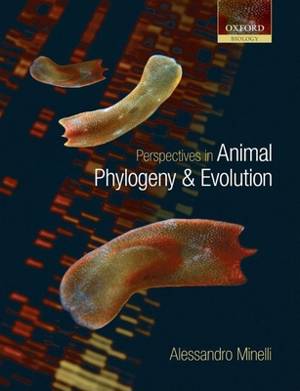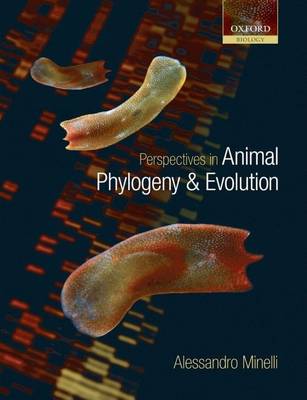
Vous voulez être sûr que vos cadeaux seront sous le sapin de Noël à temps? Nos magasins vous accueillent à bras ouverts. La plupart de nos magasins sont ouverts également les dimanches, vous pouvez vérifier les heures d'ouvertures sur notre site.
- Retrait gratuit dans votre magasin Club
- 7.000.000 titres dans notre catalogue
- Payer en toute sécurité
- Toujours un magasin près de chez vous
Vous voulez être sûr que vos cadeaux seront sous le sapin de Noël à temps? Nos magasins vous accueillent à bras ouverts. La plupart de nos magasins sont ouverts également les dimanches, vous pouvez vérifier les heures d'ouvertures sur notre site.
- Retrait gratuit dans votre magasin Club
- 7.000.0000 titres dans notre catalogue
- Payer en toute sécurité
- Toujours un magasin près de chez vous
209,95 €
+ 419 points
Format
Description
Animal phylogeny is undergoing a major revolution due to the availability of an exponentially increasing amount of molecular data and the application of novel methods of phylogentic reconstruction, as well as the many spectacular advances in palaeontology and molecular developmental biology. Traditional views of the relationships among major phyla have been shaken and new, often unexpected, relationships are now being considered. At the same tiem, the emerging discipline of evolutionary developmental biology, or 'evo-devo', has offered new insights into the origin and evolvability of major traits of animal architecture and life cycle. All these developments call for a revised interpretation of the pathways along which animal structure and development has evolved since the origin of the Metazoa. Perspectives in Animal Phylogeny and Evolution takes on this challenge, successfully integrating morphological, fossil and molecular evidence to produce a novel reinterpretation of animal evolution. Central to the book's approach is an 'evo-devo' perspective on animal evolution (with all the fresh insights this has given into the origin of animal organization and life cycles), complementary to the more traditional perspectives of pattern (cladistics, comparative anatomy and embryology), mechanisms (developmental biology) and adaptation (evolutionary biology). The author advocates the need to approach the study of animal evolution with a critical attitude towards many key concepts of comparative morphology and developmental biology. Particular attention in the book is paid to the evolution of life cycles and larval forms. This accessible text is suitable for graduate students taking advanced courses in evolutionary developmental biology, invertebrate zoology, molecular phylogenetics and palaeontology, as well as professional researchers in these fields requiring an authoritative and up-to-date overview of this dynamic topic.
Spécifications
Parties prenantes
- Auteur(s) :
- Editeur:
Contenu
- Nombre de pages :
- 336
- Langue:
- Anglais
Caractéristiques
- EAN:
- 9780198566205
- Date de parution :
- 15-02-09
- Format:
- Livre relié
- Format numérique:
- Genaaid
- Dimensions :
- 246 mm x 185 mm
- Poids :
- 938 g







